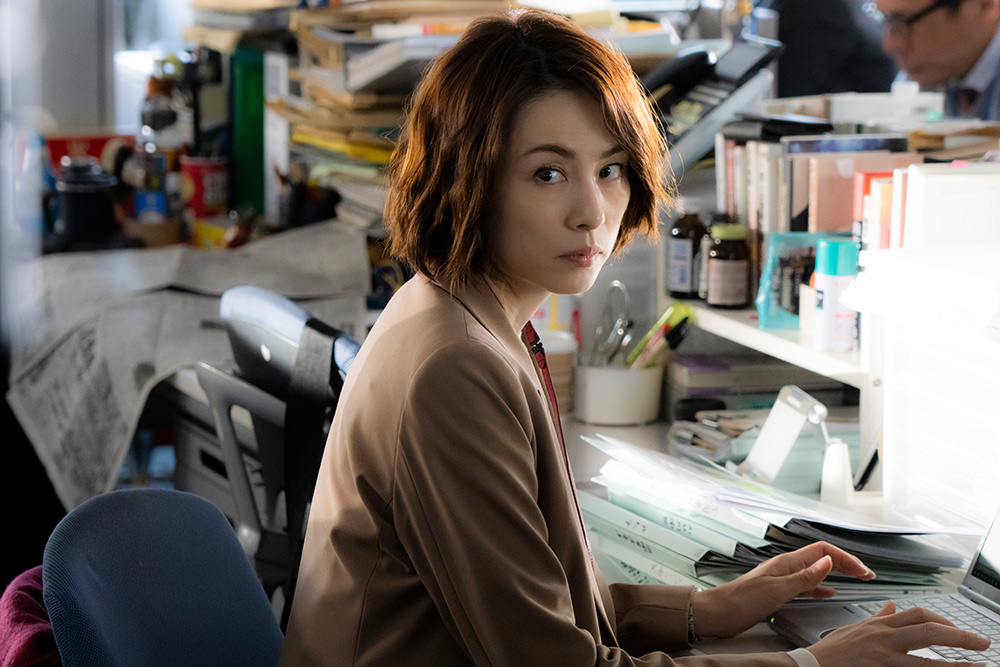![Director Michito Fujii of the Netflix series "The Journalist" talks about eras and generations. The key is “making it your own” [Director's Interview Vol.173]](https://cinemore.jp/images/aa7f08df682e29ca868df0fa0afe200888ecff5fa9a7f4cc797fa35f17d81a30.jpg)
Director Michito Fujii of the Netflix series "The Journalist" talks about eras and generations. The key is “making it your own” [Director's Interview Vol.173]
The dynamic "Avalanche" and the static "The Journalist"
Q: I saw this film and felt that it had something in common with " The Post " (2017), but works like "The Journalist" are rare in Japan these days, and I think "Avalanche" is the only one like it. What kind of works depicting society with citizens at the center, Director Fujii, do you like?
Fujii: It's definitely "Money Heist" (2017-). I think "Avalanche" was especially influenced by it. "The Journalist" and "Avalanche" are similar in what they do, but their approaches are completely opposite. "Avalanche" is a theatrical production that captivates with "movement," while "The Journalist" is "stillness."
In terms of references, since "Avalanche" was a quick and dirty job, I studied "Money Heist," "Bad Guys" (2014), and " The Boys " (2019-), but "The Journalist" was written in a "room of spirit and time," so it's closer to a documentary (laughs). If I had to choose, I'd say " Three Billboards Outside Ebbing, Missouri " (2017).
Q: The works you just mentioned have in common that "citizens can change society." This time's "The Journalist" also contains such a positive Arrival.
Fujii: That was something I was especially conscious of this time. If the movie version looked like a grenade or a Molotov cocktail to someone else, we made the TV version with the feeling that we were cleaning up and planting flowers.

Netflix series “The Journalist” will be distributed exclusively worldwide on Netflix from January 13, 2022 (Thursday)
Q: The word "future" also appears symbolically.
Fujii: It's an essential theme when working with producer Mitsutsune Kawamura. Kawamura himself is someone who thinks a lot about how we can leave the future for our generation, and I always think that we who inherited that have to think about it too.
Q: The gaze towards the future seems to be present in "The Journalist" as well as Director Fujii's recent works such as "The Yakuza and the Family," "Lemmings in the Box," and "Avalanche."
Fujii: I started making "Miniature Lemmings" as a light social media horror film, but I became more and more interested in how society is looking at me from a bird's-eye view. I used the title "lemmings" as an ironic reference to the "feeling of being toyed with," that is, pretending to have a will of their own, but in fact not really having one. (*Lemmings are a type of rat. There is a legend that they commit mass suicide to control their numbers.)
Q: I see. However, I was particularly impressed by the works released this year (2021) that did not go in a dystopian direction. There is definitely hope somewhere.
Fujii: Maybe it's because the past two years have been a real dystopia, the COVID-19 pandemic. When I see a dark work, I sometimes wonder, "Why show this now?" and I wondered whether it was really something that should be shown to audiences living in the current era.
I think that I am creating videos that keep up with the times, so when times are tough I want to encourage people, and when people seem to be having fun I want to pass it on to them.

